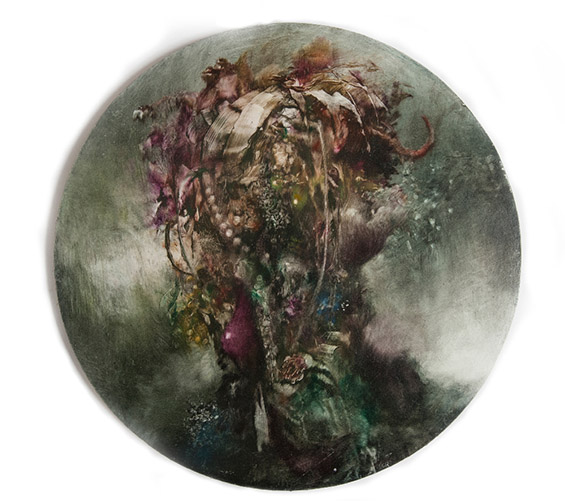
Nadine Gordimer died this week at the venerable age of 90. She was the first South African writer to win the Booker Prize – in 1974 for her novel The Conservationist – and the first South African to receive the Nobel Prize for Literature, which she was awarded in 1991. Much of Gordimer’s literary career coincided with the period of apartheid, and the fearlessness with which she addressed its injustices in her work led to the banning of several of her novels in her home country. The political commitment of her work is a major part of her achievement, but her incisive social realism transcended that commitment. In a 1980 interview with the Paris Review, Gordimer spoke of the influence of the politically oppressive situation on her work, stressing that her true literary concerns were intimate:
the real influence of politics on my writing is the influence of politics on people. Their lives, and I believe their very personalities, are changed by the extreme political circumstances one lives under in South Africa. I am dealing with people; here are people who are shaped and changed by politics. In that way my material is profoundly influenced by politics.
Among the many writers to pay tribute to Gordimer this week was Margaret Atwood, who wrote in the Guardian that Gordimer understood
that there were no clear-cut resolutions to unjust situations that have gone on for centuries: scar tissue runs deep, and the political freedom of one set of people is not necessarily going to mean happy times for all. Human beings are human: their motives are mixed, their actions often shoddy no matter what ideologies they purport to embrace, and hunger is an astonishing motivator of behaviour.
In that respect, Gordimer the writer is entirely unsentimental. She doesn’t go in for heroes.
J. M. Coetzee, the only other South African-born writer to achieve the rare feat of winning both the Booker and Nobel prizes, also praised Gordimer’s integrity, telling the Sydney Morning Herald:
As a writer and as a human being, Nadine Gordimer responded with exemplary courage and creative energy to the great challenge of her times, the system of apartheid unjustly imposed and heartlessly implemented on the South African people. Looking to the great realist novelists of the nineteenth century as models, she produced a body of work in which the South Africa of the late twentieth century is indelibly recorded for all time.
The program for the 2014 Melbourne Writers’ Festival is officially released today. It has been known for some weeks that Salman Rushdie will be one of the star attractions; today it was revealed that the opening night address will be delivered by Helen Garner, whose highly anticipated new book This House of Grief will be published in September. Among the overseas guests will be the New Yorker’s brilliant television critic Emily Nussbaum and Dave Eggers, who will deliver the Festival’s closing night address (before heading north to the Brisbane Writers’ Festival). Notable Australian authors who will be attending include Alex Miller, Isobelle Carmody, Tony Birch, Sonya Hartnett, Joan London and Gerald Murnane.
Sydney Review of Books will be there too. I will be discussing the finer points of fictional and non-fictional storytelling with Wayne Macauley and Maria Tumarkin, the formal dimension of the novelist’s craft with Mark Henshaw and Philip Hensher, and the perennially contentious topic of public criticism with fellow critics Melinda Harvey and Alison Croggon. SRB’s Editorial Coordinator, Alice Grundy, will also be appearing in her capacity as a publisher at a session considering pathways to publication for new writers. The complete program is now online at the MWF site.
This week SRB features an essay by Brigitta Olubas on the life and work of Penelope Fitzgerald. Reviewing Hermione Lee’s major new biography of Fitzgerald, Olubas considers Fitzgerald’s late blooming as a novelist, her quirky public image, and the ways in which her sensibility may have been shaped by some of her life’s hardships. Drawing on Edward Said’s notion of ‘late style’, Olubas reflects on how this might apply particularly to women writers of Fitzgerald’s generation, many of whom had careers that were, like Fitzgerald’s, marked by interruption and the belated recognition of their literary achievements.
We also feature something a little different. Back in May, the French poet and memoirist Jacques Roubaud came to the Writing and Society Research Centre at the University of Western Sydney to talk about Oulipo, the literary movement whose members have included luminaries such as Georges Perec, Italo Calvino and Raymond Queneau. The writers of the Oulipo seek to stimulate creativity by placing strict formal limitations on their writing. In these video extracts of Roubaud’s charming presentation, he reads from the work of fellow Oulipo writer Harry Mathews and gives a particularly amusing summary of the rules of the Oulipo movement, including the delicate matter of how one might go about resigning, if one were so inclined. It’s quite difficult, apparently.
Today’s newsletter image is ‘Mayfielder’ by Peter Gardiner, which will be on display next week at the Damien Minton Gallery in Redfern (which unfortunately will be closing in August), while From the Archives this week features Sophia Barnes’ fine essay ‘And, And, And’, on the work of another recently departed Nobel laureate, Doris Lessing, in which Barnes takes up the issue of Lessing’s reputation and the way her work defies easy categorisation. Our second selection from the archives is Andrew McCann’s excellent ‘Low Theory’, which considers two books on the Situationists by fellow expatriate McKenzie Wark. And why McCann this week? Well, a few days ago Wark tweeted that ‘Low Theory’ was the best account of his work to have been published in Australia in over ten years.
